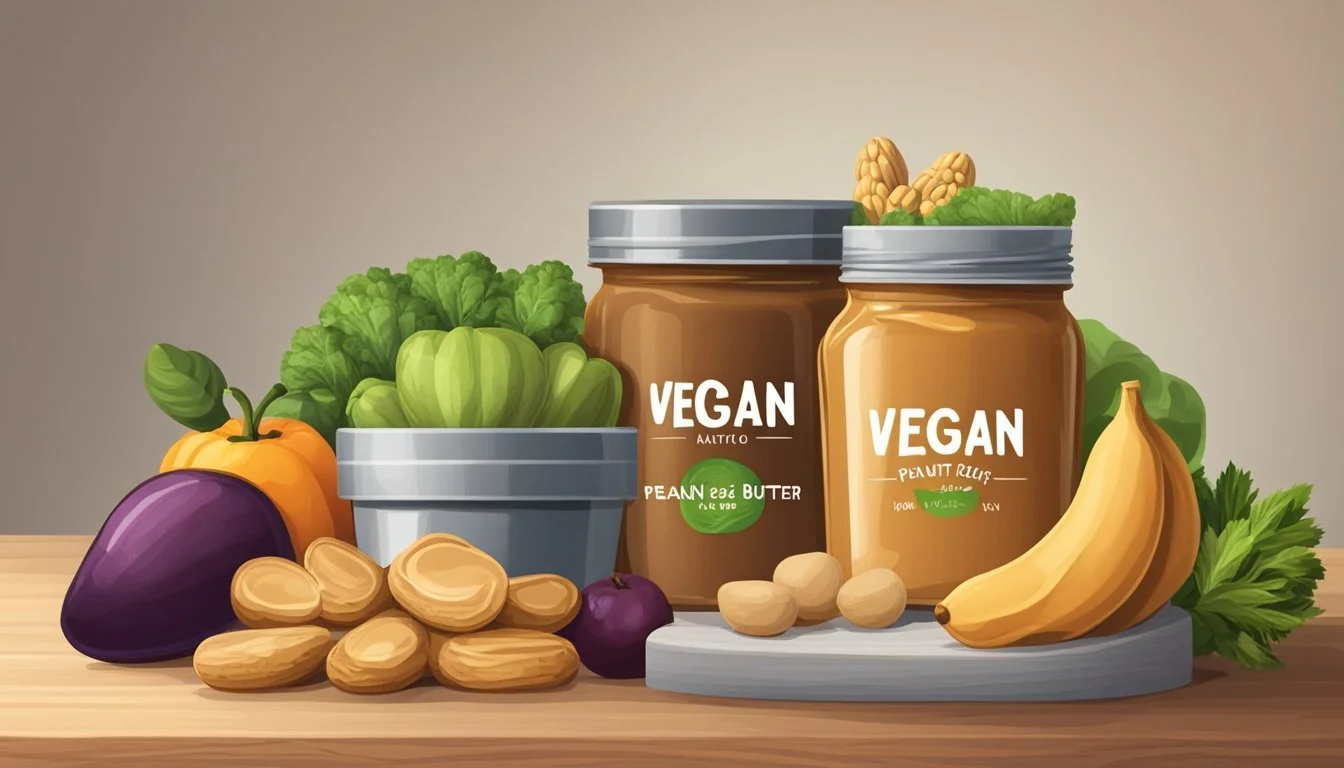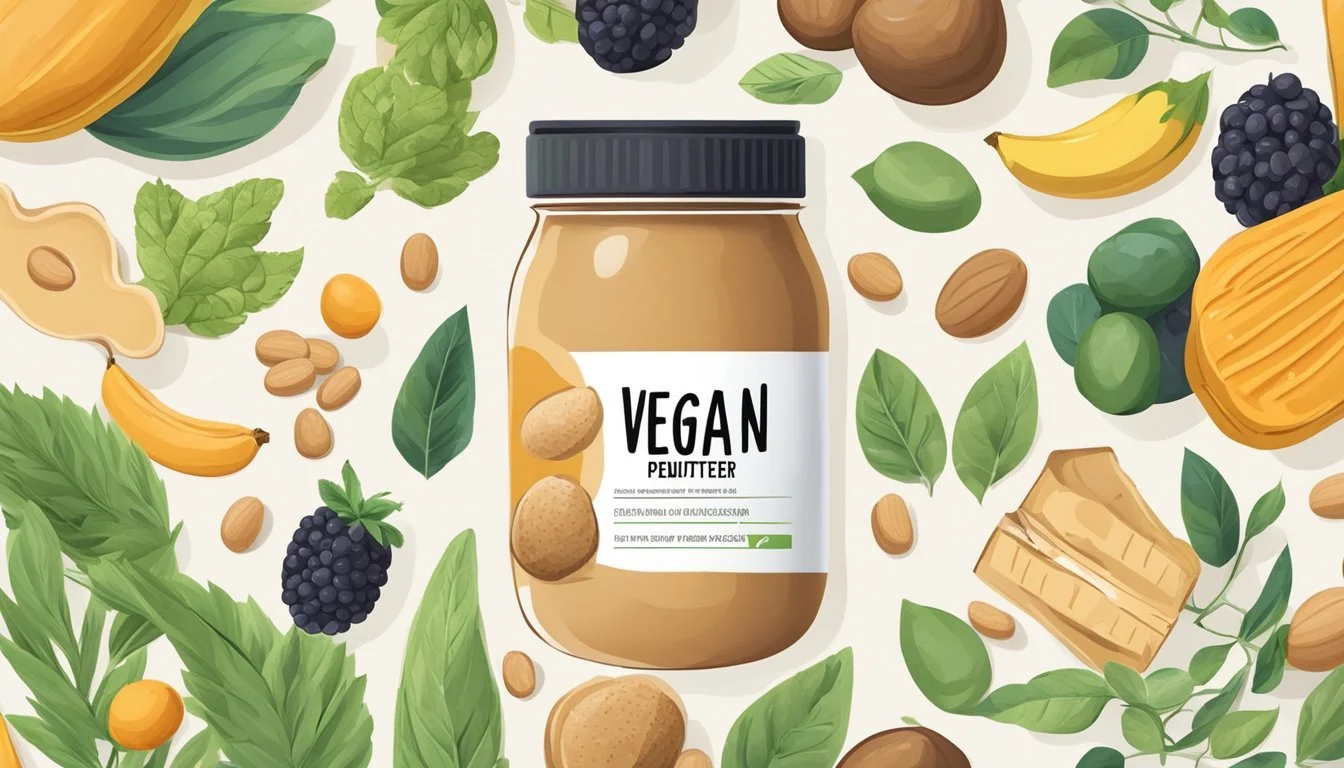Is Peanut Butter Vegan?
Uncovering the Truth About This Popular Spread
Peanut butter is a staple food item in many households, known for its rich flavor and high protein content. It typically consists of ground peanuts, with variations in the recipe that may include oil, salt, and sweeteners. As consumers become more health-conscious and environmentally aware, many are turning to plant-based diets, and the question arises: is peanut butter vegan?
The majority of peanut butter on the market can be considered vegan, as it does not contain animal products. The fundamental form of peanut butter is simply a blend of peanuts that creates a paste. However, there are some peanut butter brands that include additives like honey, which vegans avoid due to it being an animal byproduct. Careful label examination is essential for those adhering to a strict vegan diet to ensure the absence of non-plant-based ingredients.
Understanding Veganism
To engage with the concept of veganism, it is vital to grasp its definition and recognize common animal-derived ingredients that are often present in various foods.
Definition of Veganism
Veganism is a lifestyle and dietary choice wherein individuals avoid all animal products and by-products. This encompasses a diet that is exclusively plant-based and excludes meat, dairy, eggs, and honey. Those who adhere to a vegan diet aim to minimize animal exploitation and cruelty.
Common Animal Products in Foods
Foods, even those that seem plant-based, can contain hidden animal products. Common ingredients derived from animals include:
Milk and Dairy: Often found in baked goods, chocolates, and processed snacks.
Honey: Used as a sweetener in numerous foods and beverages.
Bone Char: Sometimes utilized in the sugar refining process, making some sugars non-vegan.
To ensure a product is vegan, one must scrutinize the ingredient list for traces of animal products.
Peanut Butter Fundamentals
Peanut butter is a spread primarily composed of ground peanuts, which may vary in texture and nutritional content based on its ingredients and preparation. It is often considered a nutrient-dense food that can be part of a healthy diet.
Basic Ingredients in Peanut Butter
The fundamental components of peanut butter consist of:
Peanuts: The core ingredient, providing flavor and protein.
Oil: Ensures a smooth consistency and preserves freshness.
Salt: Added for flavor enhancement.
Some varieties might include additional ingredients such as sugar for sweetness or further additives for shelf stability.
Types and Textures of Peanut Butter
Peanut butter comes in various types and textures:
Smooth: Creamy with a uniform consistency.
Chunky: Contains pieces of peanuts for a varied texture.
Both types offer a similar nutrition profile but cater to different preferences in texture and consistency.
Health Aspects of Peanut Butter
Peanut butter is known for its nutrition benefits, which include:
Protein: Essential for muscle repair and growth.
Healthy Fats: Monounsaturated and polyunsaturated fats can support heart health.
Fiber: Beneficial for digestive health.
Vitamin E: An antioxidant that may help protect cells from damage.
Magnesium: Important for many processes in the body, including nerve function and blood sugar control.
While peanut butter can contribute to a healthy diet, moderation is key because of its high calorie and fat content. The inclusion of peanut butter may reduce the risk of heart disease when consumed as part of a balanced diet.
Vegan Labeling and Certification
When selecting vegan peanut butter, understanding food labels and certification processes is crucial. These tools help consumers identify products that meet strict vegan standards.
Understanding Food Labels
Ingredients List: Consumers should examine the ingredients list for non-vegan items. Typical vegan-friendly peanut butter contains peanuts, oil, and salt. However, additions like honey or omega-3 from fish make a product non-vegan.
Organic Labels: While an organic label indicates no synthetic pesticides or fertilizers, it does not confirm a product as vegan. Shoppers must look for specific vegan labels.
Certification Processes
Certified Vegan Logo: A product with this logo has passed verification by a vegan certification organization. It ensures the product is free of animal products or by-products and that no animal testing has occurred.
Certification Standards Certified Vegan No animal ingredients or testing Organic No synthetic pesticides or fertilizers
Process: Products undergo a documentation review and possibly an audit to become certified vegan. Brands like Jiff, Smucker's, and Justin's offer certified vegan peanut butter options.
Peanut Butter Ingredients to Watch Out For
In assessing whether peanut butter is vegan, consumers should be mindful of non-vegan additives and cross-contamination risks. It's vital to scrutinize ingredient lists and manufacturing processes to ensure compliance with a vegan diet.
Non-Vegan Additives in Peanut Butter
Certain additives in peanut butter may be of animal origin, rendering the product non-vegan. Consumers need to check for:
Honey: Often used as a natural sweetener, but it's an animal-derived product.
Sugar: Some sugar is processed with bone char, which is derived from animal bones. Vegans should look for peanut butter that uses organic or unrefined sugar.
Milk: Some flavored or specialty peanut butters may contain milk or milk derivatives, which are not vegan.
Additives to look for on labels include:
Additive Source Vegan Status Honey Bees Non-vegan Sugar Cane (with bone char) Often non-vegan Milk Dairy Animals Non-vegan
The Issue of Cross-Contamination
Cross-contamination can occur if vegan and non-vegan foods are processed on the same equipment. This poses a particular concern for strict vegans. To avoid cross-contamination, consumers should:
Search for certification labels that indicate the peanut butter is vegan.
Contact manufacturers to inquire about their production processes and cleaning protocols between runs.
Opt for brands that maintain a dedicated vegan production line or facility.
It should be noted that while cross-contamination does not change the ingredient list, it may affect the suitability of a product for individuals following a strict vegan lifestyle.
Environmental and Ethical Considerations
When selecting a peanut butter, consumers should consider the environmental and ethical implications of production, including the ingredients used and their sourcing. Addressing these points helps ensure the chosen product aligns with vegan principles beyond the absence of animal products.
Palm Oil and Deforestation
Palm Oil: Many peanut butter brands incorporate palm oil as an ingredient. Its production is notorious for its role in deforestation and associated habitat loss. Environmentally conscious consumers seek out products that either do not contain palm oil or ensure it is sustainably sourced with certifications, such as the Roundtable on Sustainable Palm Oil (RSPO).
Sustainable Palm Oil: Check for RSPO label
Palm Oil-Free: Look for brands that do not include palm oil
Ethical Sourcing of Ingredients
Ingredients: The process by which the ingredients of peanut butter are sourced can have significant ethical implications. Consumers often prefer brands that are transparent about the origins of their ingredients, ensuring ethical sourcing practices are upheld.
Organic Peanut Butter: Organic farming practices are valued for reducing chemical usage and promoting biodiversity.
Natural Peanut Butter: Often contains fewer additives and is seen as a purer form. It is important to confirm that any sugars added have not been processed with bone char, a concern for strict vegans.
By considering these environmental and ethical concerns, consumers are able to make more responsible choices that reflect their vegan values.
Popular Peanut Butter Brands and Their Vegan Status
When considering the vegan status of peanut butter brands, it is divided between mainstream and organic or artisanal labels. Each has their own offerings, with specific ingredients and certifications that determine whether they are suitable for a vegan diet.
Mainstream Brands
Jif, Skippy, and Peter Pan are household names that dominate the peanut butter market. Jif offers a variety of peanut butter products, most of which are vegan since they primarily contain peanuts and sugar; however, their flavored varieties may not be vegan. Skippy brands its regular peanut butter as vegan-friendly, despite containing a small amount of hydrogenated vegetable oil. Peter Pan likewise produces traditionally vegan peanut butters, but it is essential to read labels for any non-vegan additives in flavored or specialty lines.
Organic and Artisanal Brands
Organic and artisanal brands such as Yum Butter, Spread the Love, and Santa Cruz Organic pride themselves on producing peanut butters that are not only vegan but also free from unnecessary additives. Yum Butter offers an array of plant-based nut butter, which includes peanut butter made without preservatives, additives, and refined sugars. Spread the Love markets an unsalted, organic peanut butter that contains purely peanuts, catering to the clean-label preference of vegan consumers. Santa Cruz Organic has a reputation for its certified organic peanut butters that are explicitly labeled vegan, ensuring consumers can enjoy their spreads without concern for hidden animal-derived ingredients.
Alternatives and Substitutes
Finding a vegan alternative to peanut butter can be important for those looking to avoid animal products or for individuals with peanut allergies. This section explores readily available plant-based nut butters, homemade recipes for creating your own spreads, and specific vegan brands that offer peanut butter substitutes.
DIY and Homemade Varieties
Individuals can opt for homemade peanut butter alternatives that are both simple to make and customizable. Ingredients like sunflower seeds, pumpkin seeds, or hemp seeds can be processed in a food processor or blender with a bit of oil and salt to achieve the desired consistency. Adding agave nectar or maple syrup can provide a touch of sweetness if desired.
Other Plant-Based Nut Butters
Aside from traditional peanut butter, there are a plethora of nut butters available that are inherently vegan. These include:
Almond Butter: Often found organic, with a creamy texture and a rich source of healthy fats and vitamin E.
Cashew Butter: Creamy and slightly sweeter, a good source of magnesium and iron.
Soy Nut Butter: A nut-free option that mimics the texture and taste of peanut butter, suitable for those with nut allergies.
Vegan Brands and Options
Several brands specialize in producing vegan nut butters that are both delicious and ethically produced. Notable among them are:
Yum Butter Organic Peanut Butter: Offers organic, vegan options that are environmentally friendly.
Spread The Love Organic Peanut Butter: Known for its natural ingredients without the addition of palm oil or sugars.
For those seeking vegan alternatives, these brands are reliable choices that ensure the product is free from animal products, aligning with vegan dietary choices.
Incorporating Peanut Butter into a Vegan Diet
Peanut butter is a versatile food that can enhance a vegan diet with its nutritional benefits and can be used in a variety of recipes. It's a plant-based staple that's both a flavorful addition to vegan dishes and a source of important nutrients.
Recipes and Uses
Peanut butter can play a central role in vegan cooking, offering both flavor and substance to dishes. Here are some specific ways it can be used:
Desserts: It serves as a rich, creamy base for numerous vegan desserts like cookies, brownies, and fudge.
Smoothies: A spoonful can add a protein boost and creamy texture to a morning smoothie.
Snacks: Peanut butter is an ideal component of energizing snacks such as energy balls or on apple slices.
Meat Alternative: In savory dishes, it can serve as a binding agent in veggie burgers or as a key ingredient in sauces for tofu and tempeh.
Nutritional Benefits
The nutritional content of peanut butter can contribute significantly to a vegan diet:
Protein: It is a good source of plant-based protein, which is vital for muscle repair and growth.
Fats: Although high in fat, it provides heart-healthy monounsaturated and polyunsaturated fats.
Vitamins and Minerals: Peanut butter contains vitamin E, magnesium, vitamin B6, and manganese, all necessary for maintaining good health.
Here's a brief overview of the nutritional benefits of peanut butter:
Nutrient Benefit Protein Supports muscle and tissue health Healthy Fats Contributes to heart health Vitamins Antioxidant and enzyme support Minerals Bone health and metabolism
Incorporating peanut butter into a vegan diet can provide not only gastronomical pleasure but also a helpful dose of essential nutrients.








